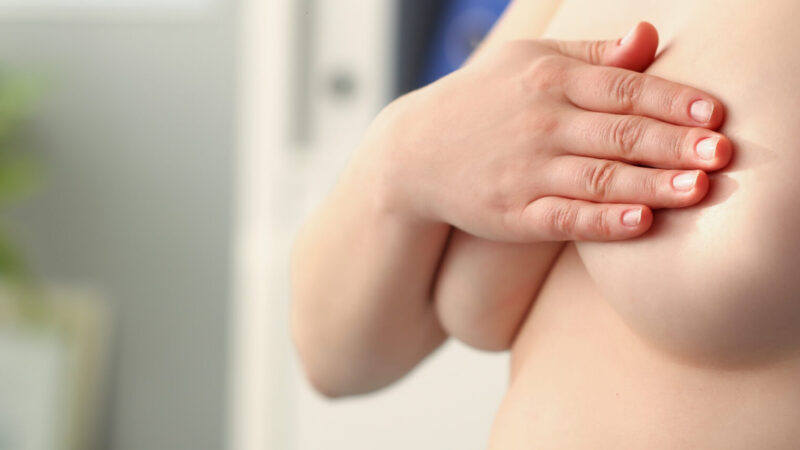
Do you check your breasts regularly for changes? Do you know when to seek medical advice about your breast concerns?
As a local Macmillan GP, I am passionate about raising awareness of breast cancer, especially during Breast Cancer Awareness Month. Breast cancer is one of the most common types of cancer in the UK and the fourth most common cause of cancer death. The good news is that early detection can make a significant difference to treatment outcomes, which is why it’s crucial for everyone to check their breasts regularly and understand the key signs to watch for.
The NHS recommends checking your breasts every month. If you have regular periods, the ideal time to check is one week after your period has finished. When breast cancer is found early, it increases your treatment options and your chances of successfully beating cancer.
Most people are aware that a lump in the breast can be a sign of cancer. However, there are other signs and symptoms that should not be overlooked.
A helpful way to remember the symptoms of breast cancer is by using the “ABCD” method, which stands for Asymmetry, Bump, Changes to the nipple, and Discomfort. Let’s take a closer look at what each of these means and why they’re important when checking your breasts.
A – Appearance
When checking your breasts, it’s important to look for any changes in shape. Many people naturally have some asymmetry, but a sudden or noticeable difference between your breasts could be a sign that requires further investigation. Look at the overall shape and size and note whether one breast appears swollen or has changed in comparison to the other.
Questions to ask yourself: Do my breasts look or feel different? Have I noticed any unexplained weight loss?
Below is a useful guide to help you remember and recognise changes in appearance that could be a sign of cancer.

Know Your Lemons
A carton of lemons used to represent various symptoms of breast cancer. Each lemon in the carton displays a different sign, including: thick area, dimple, nipple crust, red or hot skin, new fluid, skin sores, bump, hard lump, growing vein, sunken nipple, new shape or size, and ‘orange peel’ skin texture. These visual clues help to educate about early detection of breast cancer. Sourced via: Know Your Lemons® for Early Detection | Early Detection for Breast Cancer
B – Bump
Pay attention to any lumps or bumps in your breasts or armpit, whether painful or not. These could be early signs of cancer and should be checked by a healthcare professional.
Questions to ask yourself: Have I noticed any new lumps or bumps, with or without pain, in my breasts or armpit?
C – Changes to the Nipple
Take note of any changes to the appearance of your nipples. This could include the nipple becoming inverted, changes in colour, or the appearance of any unusual discharge.
Questions to ask yourself: Does my nipple look different? Have I noticed any discharge or fluid leaking from the nipple?
D – Discomfort
Persistent pain in the breast or armpit that does not go away is another important symptom to be aware of. While pain alone is not always a sign of breast cancer, it’s important to seek advice if the discomfort persists.
Questions to ask yourself: Do I have any persistent pain in my breast that doesn’t go away?
If you can answer yes to any of these questions, or if you notice anything different or unusual in your breasts, then you should get it checked.
Sometimes, breast cancer can be present without any symptoms. This is why it’s so important to attend breast screening appointments. Screening is offered every three years to patients registered as female with their GP between the ages of 50 and 71. If you have changed your gender from female on your GP system, you will not be automatically contacted for screening, so please discuss this with your GP practice.
If you notice any changes in your breasts or have concerns about breast cancer or screening, speak to a medical professional. You know your body best, and it’s important to report and discuss any changes as soon as possible. If in doubt, check it out!
For further information and useful links, visit:
- Breast Cancer in Women – NHS
- CoppaFeel! | Check Your Chest | Breast Cancer Awareness Charity
- Cancer Risk and Screening – OUTpatients
- Chest Check 101 – OUTpatients
- Breast Cancer Now
- Supporting People with Learning Disabilities – Breast Cancer Now